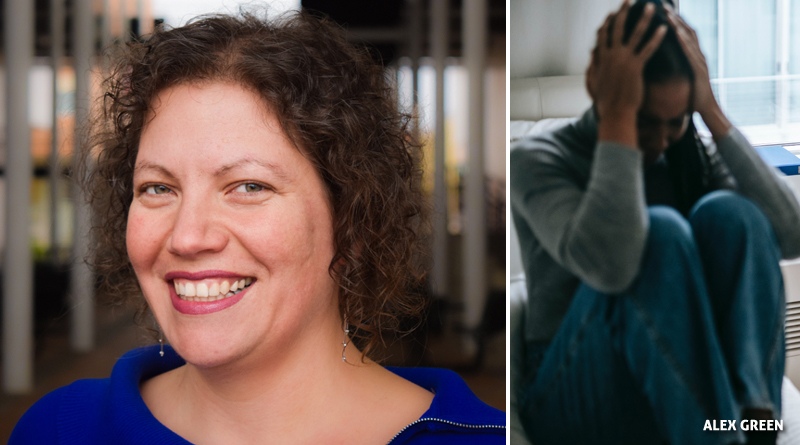Charlotte Psychology Professor: Negative Emotions Are To Be Thankful For
As a creative writer, I am always on the prowl for a good story.
“With Thanksgiving approaching, gratitude would be a good subject,” I thought. “Better yet, the psychology of gratefulness.”
It seemed like an apropos subject for the season. I went on my merry way, researching and reaching out to experts. I already mapped out how the article would look and feel but threw those plans out the window when I started talking to Sara Levens. Instead, I learned something far more valuable.
Levens is an associate professor in the Department of Psychological Science and coordinator for the Behavioral Science Health Psychology doctoral program at UNC Charlotte. Her background includes cognitive and affective neuroscience and emotion research in the context of social media, mental health, health psychology, and behavior change.
I asked Levens, “How do negative emotions get in the way of being grateful or happy?” I was looking for her to give the solution that would push all negativity aside and lead to a path of grateful thought processes. Besides, I needed some tips for Thanksgiving dinner conversation.
“So that idea of how negative emotions get in the way is interesting, because it is an element that shows a false understanding of emotion,” said Levens. “They’re viewed as just not as good as positive emotions, but that’s not how emotions exist within your body. Emotions are there to guide your behavior.”
As we continued discussing the idea of demonizing negative emotions, like fear, disgust or sadness, it became clear that the mere act of doing this only suppresses messages that the mind tries to communicate. Emotion isn’t meant to be good or bad. It’s meant to tell us about our environment, situation or life circumstances. It’s crucial to understand ourselves better, work through emotional issues and move toward gratitude.
“You need your fear response,” explained Levens. “Fear, among other negative emotions, gets a seriously bad rap. They’re just viewed as this distraction towards happiness and gratitude. We have to ask ourselves what the real barrier is. It’s us ignoring, not processing negative emotions, and not recognizing their value.”

